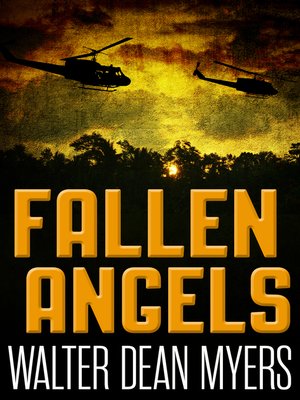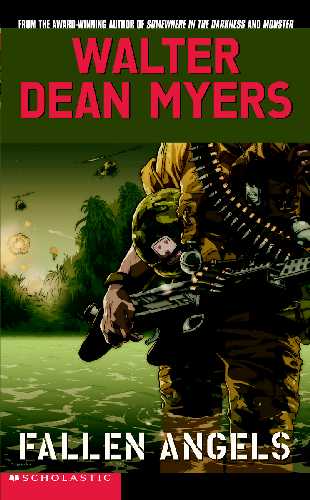

Instead, he gives you a real sense of what it was really like for an average soldier in Vietnam. That's because Walter Dean Myers doesn't want you walking away with any "romantic notions" of war. But that's because it doesn't shy away from any part of the war: the gruesome violence, the depressing moments, the racism. So, sure, it's been banned, but it's also outstanding and important.įallen Angels is not for the faint of heart. And it won the Coretta Scott King Award in 1989-an award for outstanding African American stories for young people.

They've got other things on their minds.īut Fallen Angels is also one of Time's 100 Best YA Books of All Time. Let's put it this way: the soldier characters in this book aren't about to win any politeness contests. The book is in the top 20 of the American Library Association's 100 Most Frequently Challenged Books of 1999-2000, mostly for the profanity. Not everyone has loved Myers' gritty, non-heroic depiction of Vietnam. If you've already cracked open Fallen Angels, you might have noticed the dedication on the front page: To my brother, Thomas Wayne "Sonny" Myers, whose dream of adding beauty to this world through his humanity and his art ended in Vietnam on May 7th, 1968.įallen Angels was published in 1988, twenty years after Sonny had died, but Walter wrote it for, and because of, his brother. In Fallen Angels I wanted to dispel the notion of war as either romantic or simplistically heroic." My younger brother's death in Vietnam was both sobering and cause for reflection. I thought the romantic presentations of war influenced my joining and my presentation of war to my younger siblings.

"I joined the army on my seventeenth birthday, full of the romance of war after having read a lot of World War I British poetry and having seen a lot of post-World War II films. As he became a writer, he wrote two short stories about the war, but kept feeling like he had more he wanted to say: You can only imagine the tremendous guilt Myers must have felt. He was killed on his first day in combat. Thomas looked up to his brother, so he joined the army and was sent to Vietnam. Myers even showed him some bullets he brought back. Myers' younger brother Thomas heard his war stories. This was before the "Vietnam War" was a thing. They sent him over to Vietnam, to train South Vietnamese soldiers. He was poor and his home life was a mess, so he dropped out of high school in 1954 and joined the army. Got your hankies? Let's go.īefore Myers became a giant among Young Adult authors, he was a kid, struggling in Harlem. So let's set the right mood here by telling you a sad story. These images are the opposite of what you'll encounter in the pages of Walter Dean Myers' acclaimed Vietnam War novel, Fallen Angels.


 0 kommentar(er)
0 kommentar(er)
